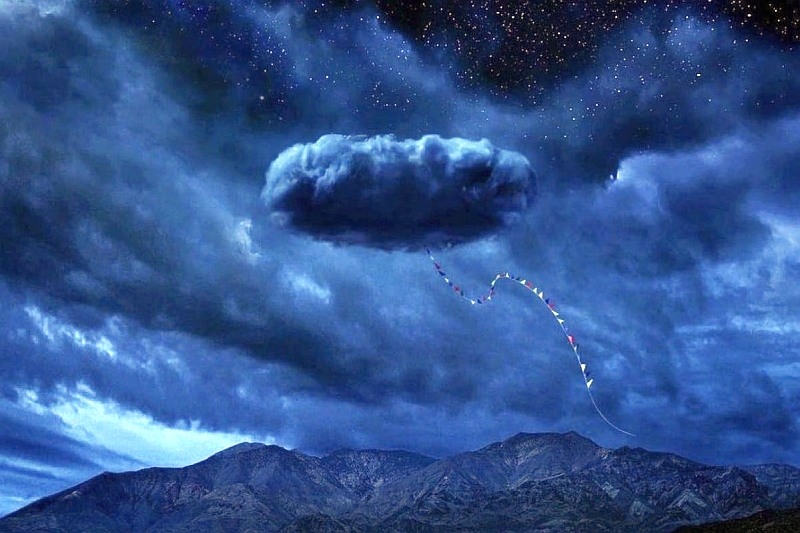I don’t know.
Perhaps critique — let alone ‘radical critique’ — is today finished as a viable modality of action, whether private or public, moral or political.
The word critique enters English from the French in the late 16th century, although its fortunes really take off in the eighteenth century, where it is bound to the upsurge of quote-unquote ‘Enlightenment,’ with all of the ambiguities accompanying that complex phenomenon and its crises, critics, criticisms, criticising and criteria. The genealogy of the word goes back much further, first to Latin, and ultimately to Greek, where kritikos is linked to the verb krinein, to separate, segregate, distinguish, and decide. Think of endocrine (endon-, within, and krinein): ‘Denoting a gland having an internal secretion which is poured into blood or lymph; a ductless gland’ (Oxford English Dictionary).
For its part, the etymology of the word ‘radical’ comes from the classical Latin radix, meaning the root of a plant, the origin of an organ, the place from which to begin a calculation, and so on. Through a sequence of mutations entirely characteristic of the descent of tongues (to speak momentarily like Charles Darwin), one part of the word ‘race’ also has this root that is root at its origin. But homonymy is not identity; pace Leibniz, the identity of indiscernibles doesn’t hold in natural languages. The race that is descended from radix is now mostly moribund in English: a race of ginger. As for the word race, signifying ‘a group of persons belonging to the same family and descended from a common ancestor’ (as the OED rather imperturbably has it), its etymology is notably contested. If it enters English from Middle French sometime in the late 15th century with an almost-recognisably contemporary significance, the French seems in turn to derive from the Italian razza or razzo, a word with a strong equine flavour. But it could also come from Old Occitan, rassa, gang, conspiracy, or plot, or from the Old French haraz, an enclosure for horse breeding, which may have some connection with the Arabic faras, for horse. These terms may in turn have the classical Latin ratio – yes, the word for account, thinking, reason – as their august forebear. There is also the race that derives from a course, a running, rås in Old Scandinavian languages, as well as the race that comes from the Anglo-Norman rasere, to raise, to strike, scrape, or scratch. Philologically speaking, then, not every radical of race is radical.
Yet the idea of radical critique might still be parsed as: a foundational judgement of reason that is simultaneously a judgement about its own foundations.
This sense is given its decisive philosophical justification by the 18th century German philosopher Immanuel Kant, who used it in the titles of his three major works: Critique of Pure Reason (1781/1787), Critique of Practical Reason (1788) and Critique of Judgement (1790). For Kant, critique demands two conditions: firstly, certitude, independent of experience (hence opinions must be disregarded); secondly, it must have clarity (whether logical or intuitive). Critique asks about the possibility of true propositions that are nevertheless non-empirical: Kant’s guiding, if not immediately perspicuous, formulation is ‘how are synthetic judgements a priori possible?’ Critique is therefore not dogmatic, as it must rationally pose questions about the conditions of possibility of truth; nor is it simply sceptical, insofar as it refuses the corrosions of endless doubt and prevarication. In fact, the first task of critique is foremost self-critique, a rigorous investigation of its own limits. In Kant’s own words:
On a hasty overview of this work one will believe himself to perceive that its use is only negative, namely that we can never dare to exceed the bounds of experience with speculative reason, and that is indeed its first use. But this then becomes positive if one becomes aware that the principles with which speculative reason dares to exceed its bounds would not in fact have the inevitable result of extending but, more closely considered, that of restricting our use of reason, in that they would really extend the bounds of sensibility, to which they actually belong, to everything, and so threaten to obstruct the pure (practical) use of reason.
So all critique is both negative and positive: it assaults the enthusiasts of unconstrained utterance and groundless assertion (i.e., us ourselves) in order to bring them back down to earth, in order to enable a more viable relationship to truth, to action, and to belief. The key is something like ‘the legislative power of the human intellect itself’: on the one hand, we are all nothing more than little animal creatures, risible cosmic specks entirely subject to physical necessity; on the other hand, we have an infinite moral vocation for freedom, insofar as our intelligence ‘reaches into the infinite.’ As Kant says in one of his most notorious phrases from the end of the Critique of Practical Reason (a phrase, incidentally much beloved by Nick Cave): ‘Two things fill the mind with ever new and increasing admiration and awe, the more often and steadily we reflect upon them: the starry heavens above me and the moral law within me.’ Furthermore, it’s worth underlining that these dual phenomena should be understood as radical both in the sense that they are absolutely fundamental to us (at least in Kant’s anthropological vision) and also in the sense that, to the extent we maintain our thinking on their basis, we will be further radicalised through the affects of admiration and awe thereby inspired. This means that the phrase radical critique is strictly speaking tautological: for Kant, there is no critique that is not radical, just as there is no real radicality without critique; and, to the extent that that is so, critique ceaselessly extends itself through ceaseless self-critique.
As Joe Hughes has pointed out, however, this formulation is itself ambivalent. Does it mean:
1) that any act of critique is radical; or
2) that only radical critique is worthy of the name ‘critique’?
Part of the difficulty is that these senses cannot be critically separated, for critique meets its own limits regarding …its own limits. At these limits, critique acknowledges that its understanding must fail, because every encounter with a limit projects the other side of that limit as ‘unlimited’ – for which a coherent concept can’t currently be constructed. This is the famous ‘police function’ of critique, constantly upbraiding others for ‘illicitly going beyond the proper boundaries.’ Yet this is also why critique bills itself as an essential modality of reason, of the essence of reason as reason-going-beyond-reason, such that, as Friedrich Nietzsche put it in an allusion to Baron Munchausen, it forever looks like it’s pulling itself out of the swamp of nothingness by its own hair.
Part of the difficulty of eluding the claims of critique, of evading what Nietzsche considered Kant’s creepy transcendental blackmail, is that attempts to critique critique tend to repeat its own radical gestures. To give a single, if crucial instance: if Kant is indeed a dead white European man writing at a deleterious moment of the acceleration of colonialism and imperialism, whose work has flagrantly racist and inegalitarian elements, the very characteristics of critique he conceptually establishes – the repudiation of dogma and scepticism, the return to fundamental categories of knowledge in order to question them again, the self-division and the
self-criticism – turn out to remain practically non-negotiable moments of public contestation in all sorts of situations, including those that seek to radically (sic) exceed liberal debate. Hence the spontaneous return of the adjective ‘Critical’ today in a wide range of self-proclaimed ‘radical’ enterprises from all over the planet.
This is not least because, according to its own lights, critique integrally makes a claim on all and any claims of power: if power is to be anything more than violence (whether ‘natural’ or ‘cultural,’ flagrant or covert, novel or customary), then it itself must make a claim to reason or immediately betray the lack of its own legitimacy; if it does make such a claim to reason, then critique must immediately target the hypocrisies and inconsistencies of established powers; and since no established power is able to justify inequality, then it will be exposed as such, perhaps forcing power to its own critical moment; and, since reason’s essence is inextricable from self-critique, then it permits many differing claims regarding differing kinds of ‘reason’; yet, if those claims to differing reasons are not to succumb to inequity in turn, then they too must present themselves for further critique or fail the test. For Kant, all power is naturally pathological, against which critique sets its face.
Moreover, critique is also committed to returning to discarded, irrelevant, forgotten or degraded things a covert reason that power didn’t want those things to have. The conceptual practice of critique accordingly goes beyond any particular natural language or territorial conflict – and not least because it was an intimate accompaniment of colonialism, even if Kant himself expressly and strenuously denies any legitimacy to the colonial project. And if the colonial situation is at once a condition and a limit that suggests the contestability of critique, well, then, any critical person must critique critique, too … by means of more critique.
When Kant was writing, one could be seriously censored, censured, incarcerated or executed for what one uttered. And this remains the case, for example, in the globally-known cases of corporate and state whistle-blowers, such as Edward Snowden, Chelsea Manning, Julian Assange, Glenn Greenwald and many others – up to the murders and assassinations of journalists, such as Jamal Khashoggi. If it is often difficult not to admire the courage and probity of many of these figures, it is also the case that something really seems to have happened to critique today. As Bruno Latour points out in a well-known essay titled ‘Why Has Critique Run out of Steam?’ (note the symptomatic metaphor of nineteenth-century industrial power), contemporary conspiracy theorists corporate goons, and climate-science deniers are all also enthusiastic adherents of critique. Latour’s own proposal – to shift from ‘matters of fact’ to ‘matters of concern’ – is ingenious in its own way, and, moreover, since it insists on the unprecedented complexity of contemporary technical objects, offers a fundamentally constructive mode of attentiveness and description towards knowledge and the world. Yet it still can’t quite cut the critical loop.
Why not? Because it too is too committed to knowing. And it can’t not be, because we all now are. And we all now are because the problem of critique has not only been bound to the ubiquity of colonial capitalism, to its technics and techniques, but to every movement and modality that seeks to contest it. On the one hand, we can’t not know, because action is indissociable from know-how; on the other, we can’t quite know, because critique must sap our own knowing in knowing. Yet such non-negotiable commitments to knowing don’t prevent us from maintaining an invincible ignorance. Ignorance is no way out of the trap of knowing. On the contrary. The now-mandatory and near-ubiquitous routines of online trolling, cancelling and non-platforming, let alone twitter threads, inventories, and testimonials, big data projections and surveillance security apps, are the algorithmically-subsidised inheritors of the negatory operations of critique.
Contemporary critique thereby returns to its own radical origins in crisis and discrimination, if not necessarily in a ‘good’ way: in its global triumph, it segregates rather than consolidates in its judgements. Critique is the endocrine system of the Anthropocene. For the same reasons, there is no longer any viable outside to critique. As the recently-deceased Paul Shetler once remarked to me about the logic of the so-called ‘accelerationists’: the only way out is through. If that’s true, however, it’s worth asking with Andrew Benjamin: what if there’s nothing on the other side?
I don’t know.
Read the rest of Overland 238
If you enjoyed this piece, buy the issue




